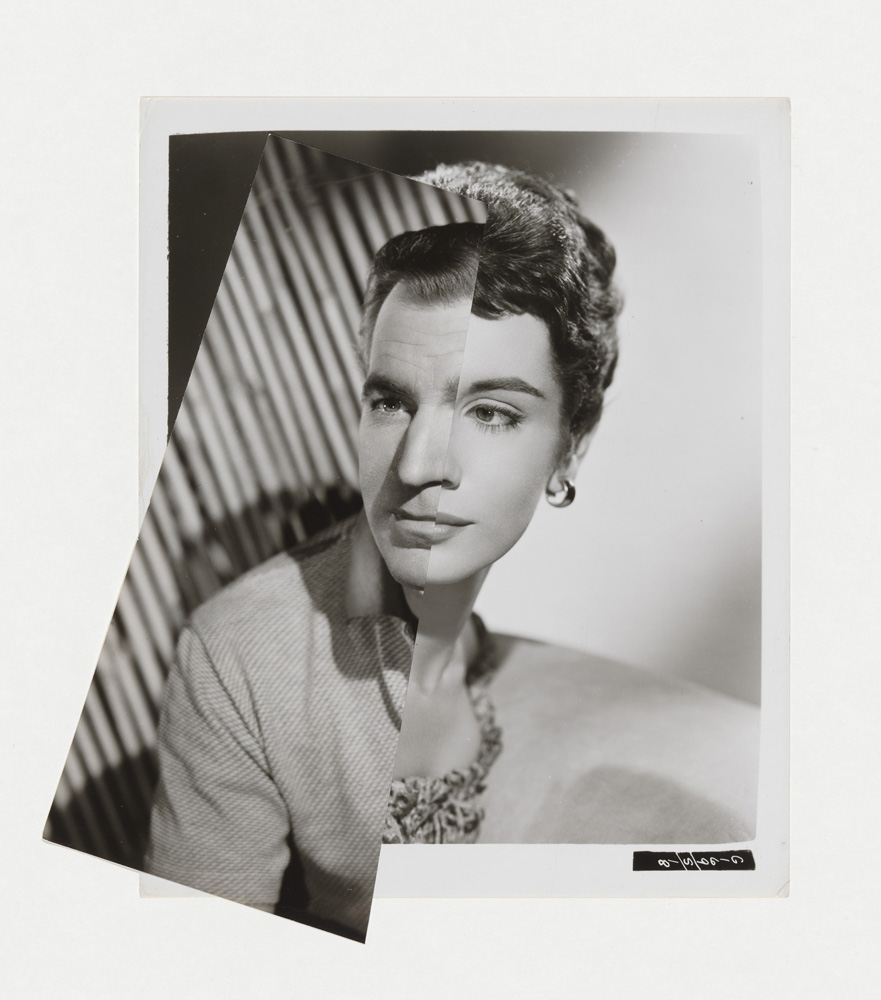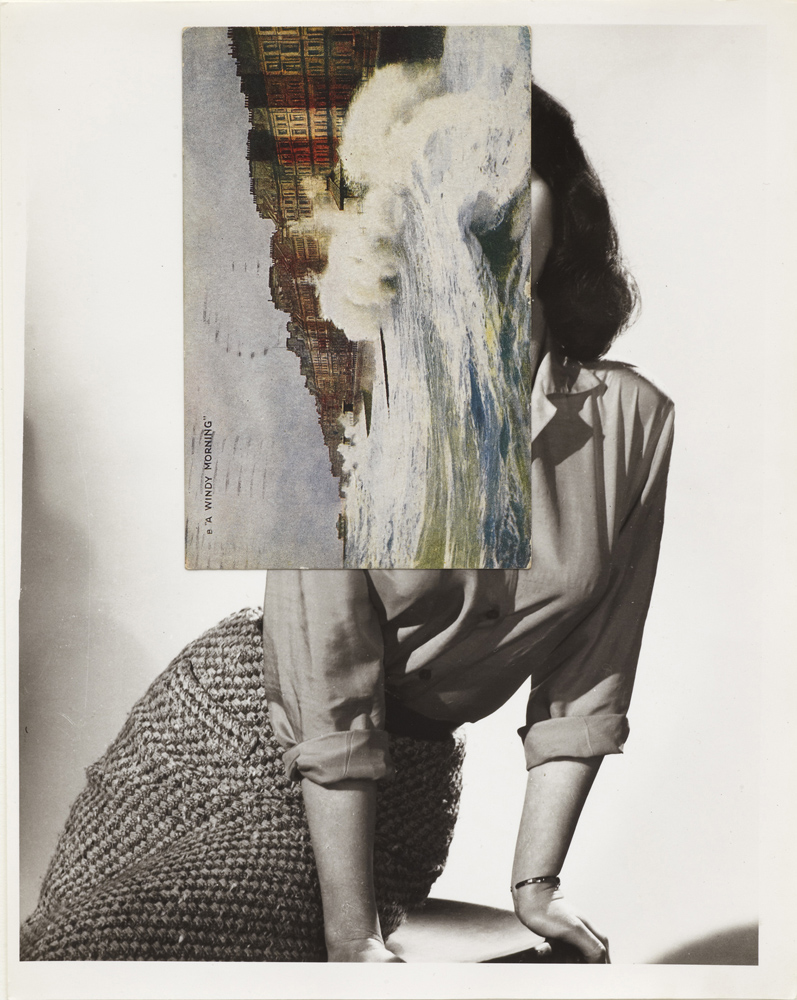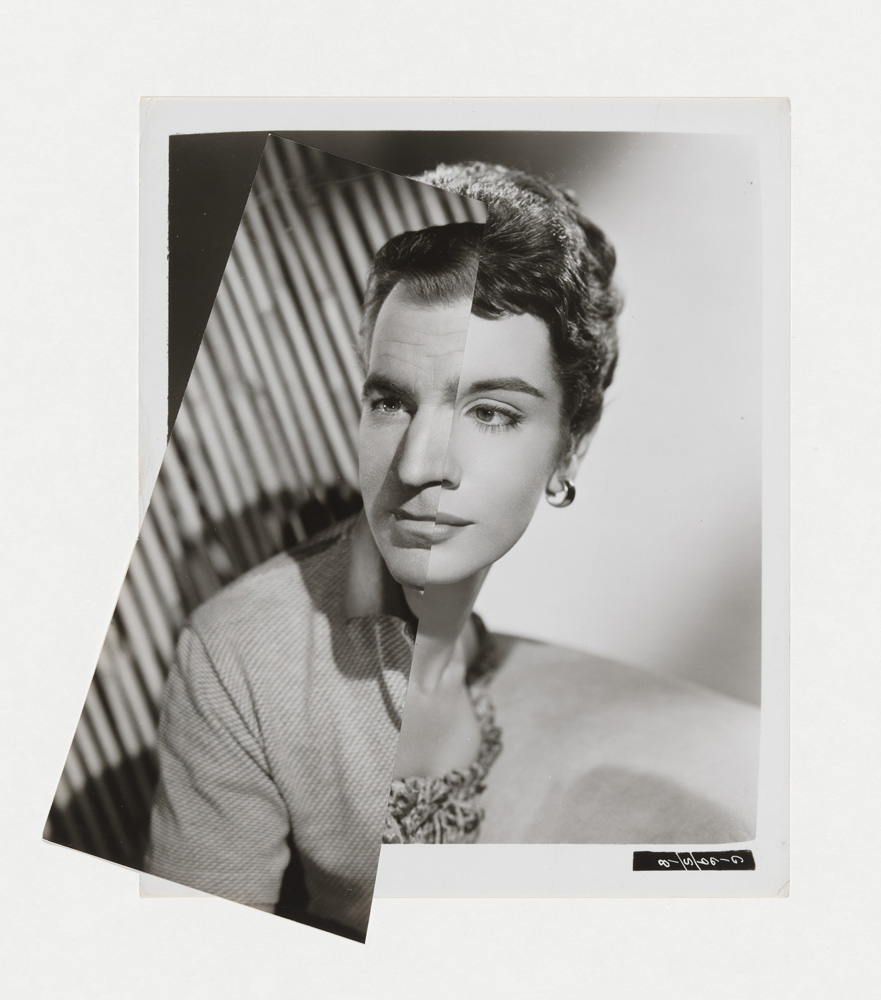
For more than 30 years, artist John Stezaker has used found images as his primary medium. In his compositions, black-and-white studio portraits become surreal two-faced beings; elsewhere, a woman’s face is replaced by the crashing white waves of an illustrated postcard. These collages, which use classic movie stills, vintage postcards and book illustrations, are sliced and re-arranged into entirely new forms—they’re simple constructions, but Stezaker’s eye for the uncanny makes them powerful.
On Sept. 3, Stezaker was awarded the 2012 Deutsche Börse Photography Prize, which recognizes a significant contribution to the medium of photography through exhibition or publication, for his presentation of photographic collages last year at the Whitechapel Gallery in London.
The £30,000 prize (about $48,000) is organized by The Photographers’ Gallery in London. “Stezaker’s work has been influential on a new generation of image-makers,” said Brett Rogers, the Director of The Photographers’ Gallery, in a statement. “Within the vastness of today’s image flow, Stezaker has managed to resurrect the power and uncanny mystery inherent in the still image using traditional photographic strategies, most especially collage.”
Stezaker’s exhibition at Whitechapel showcased work from the 1970s until today.
“I am dedicated to fascination—to image fascination, a fascination for the point at which the image becomes self-enclosed and autonomous. It does so through a series of processes of disjunction,” Stezaker said in a statement from Whitechapel.
John Stezaker is a London-based artist. See more of his work here.
An exhibition of the artists shortlisted for the Deutsche Börse Photography Prize 2012 is on display at The Photographers’ Gallery, London until Sept. 9.




More Must-Reads From TIME
- The 100 Most Influential People of 2024
- Coco Gauff Is Playing for Herself Now
- Scenes From Pro-Palestinian Encampments Across U.S. Universities
- 6 Compliments That Land Every Time
- If You're Dating Right Now , You're Brave: Column
- The AI That Could Heal a Divided Internet
- Fallout Is a Brilliant Model for the Future of Video Game Adaptations
- Want Weekly Recs on What to Watch, Read, and More? Sign Up for Worth Your Time
Contact us at letters@time.com